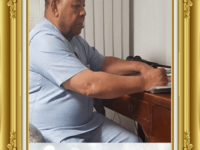Perhaps not many of the younger generation of Africans have heard or read about Tai Solarin. Solarin was born in Ikenne, Ogun State, in Western Nigeria on 20 August 1916. He was the first child in a set of twins born to Daniel and Rebecca Solarin. His twin sister, Caroline Solarin, died in 1991 aged about 75 years. He and his sister were the only children of their parents. He attended Wesley College Ibadan. Solarin was inspired by the writings of Dr. Nnamdi Azikiwe who encouraged young people to travel and study abroad.
Tai secured himself a passport and visa to the UK and later enlisted in the British Military Forces, serving with the Royal Air Force as a navigator in the Second World War. He remained in Britain and studied at the University of Manchester, and then at the University of London. In 1951, he married English-born Sheila Mary Tuer.
He returned to Nigeria and became a tutor at Molusi College, which was managed by the local community and Christians in Ijebu-Igbo. In 1952, he was appointed the school’s Principal, succeeding Stephen Awokoya who had just been appointed the Regional Minister for Education.
Solarin felt he was a humanist who had a mission to “re-educate” the community and so, he decided to make some changes. He abrogated morning prayers and removed Religious Studies as a subject in the school. The local community where his brother was a reverend was agitated and vehemently opposed some of the changes.
Tai decided to quit and found his own school with the approval of Awokoya, the former Principal. Solarin established Mayflower School on 27 January 1956.
The Mayflower campus, which he established, occupied hundreds of hectares of land in Ikenne, his birthplace. Approximately 15,000 students were at school. The campus included classrooms, administration buildings, portable houses for many of the teachers, dormitory accommodation for about 5,000 boarders and a farm. The school was noted for its very high academic performance.
Tai Solarin was one of the many post-independence civil rights activists and critics of the government in his native Nigeria. Some others who notably criticized the government were Afrobeat musician, Fela Anikulapo-Kuti and his older brother, Dr. Beko Ransome-Kuti, Nobel Laureate Professor Wole Soyinka, Professor Ayodele Awojobi, Journalist Dele Giwa, Legal Luminary Gani Fawehinmi, and Environmentalist Ken Saro-Wiwa.
For most part of the first forty years after independence, Nigeria could not summon any form of effective opposition to the mostly military government of the day. And so, these activists acted as an effective opposition to the ruling government, as it were. In 1975, when General Gowon delayed returning power to a civilian regime, Tai published his “The Beginning of the End” statement, which he then physically distributed on the roadside. He was subsequently imprisoned for this “disrespectful” act. Throughout his lifetime Tai fought running battles with various governments in a bid to improve the lot of Nigerian masses.
For four decades, Mr. Solarin was an intellectual guru for Nigeria’s disenchanted and disfranchised population. His writings in magazines and newspapers, highlighting what he called the hypocrisy and vulgarity of Nigeria of his day, frequently angered people in authority. Precisely, Tai was an unrepentant critic of military rule in Nigeria, Africa’s most populous nation, and an ombudsman in three states in 1976 and 1977. As a columnist, Tai was a relentless critic of Nigerian military rule and official corruption in government and in the Church. He was often jailed for his public remarks.
In a country and an age where dignitaries wore flowing Agbada to show off their wealth and social affluence, Tai was known to always wear simple khaki shorts and shirt. And he would often say: “I fight with an indomitable spirit: my back to the wall, defeat is for those who accept it. The greatest strands of affection are woven in adversity. Leadership means suffering. The Leader who has no marks, indelible marks to show either on his physical body or in his mind, has never led. How many Socrates did Greece breed? How many Nehrus did India breed? They have one each but they all had one thing in common, a sense of mission: an unquenchable thirst to get things done. We need, as in this instance, only one courageous Nigerian to take a stand. But no Nigerian wants to offer his head to break a coconut.”
One of Tai Solarin’s basic principles was self-reliance, a part of the curriculum at Mayflower. In 1989, he literarily forced the military President, Ibrahim Babangida, to do his bidding. In that year, the Peoples Bank was founded by government. President Babangida appointed Tai Solarin as the first Chairman. The bank was created to disburse soft loans and other forms of credit to the very poor to start their own businesses.
The story was told of how, for many years, Tai Solarin had been a huge and unrelenting headache for military President Ibrahim Babangida. Tai was a hard critic of IBB and a committed lover of the poor. He always said that Babangida was grossly incompetent. So, one day, after series of criticisms, IBB invited Tai for a discussion. The President asked him what, in his opinion, could be done to better the lives of Nigeria’s poorest.
Tai was happy. He quickly proposed that soft loans should be approved for all the poor Nigerians to enable them start small scale businesses. As they return the loans, other poor people will continue to benefit until it reaches everyone. IBB clapped for Tai and pleaded with him to champion the noble cause so that the programme can run without a hitch. Tai agreed.
That was how the Peoples Bank was immediately formed by decree and a huge fund was pumped into it with Dr. Tai as the Chairman. Poor people got funds to start or expand their businesses. It was coordinated by Tai. IBB never gave him any bottleneck, no distractions. But after giving out loans to the poor, the poor refused to return the money, neither did anyone see their businesses on the ground. They spent the loaned money but made no repayments.
Tai smelled a rat. Tai was sweating under an air condition in the office when he was invited by IBB. “There is going to be trouble”, he swore under his breath. After many futile attempts to recover the loans, the celebrated Peoples Bank crashed and became liquidated. Tai was running helter-skelter.
He finally went to IBB to report his experience. IBB was not angry. He merely said: “My brother, do you see what we are facing in government? It is easy to talk. Talk is cheap sir, but look at your bank. This is just one small bank that you cannot manage well. Imagine how many banks we have. Imagine ruling a whole country, sir. If people now blamed you for the collapse of the bank you proposed and chaired, how would you feel? Don’t worry sir, you will not be prosecuted. Just go home and rest. You have had enough troubles already. Thanks for your service to the nation…..” But before he could leave Dodan Barracks, the Military President ordered that he be called back. Tai Solarin started sweating all over again. What else could possibly be wrong? He quickly composed himself before IBB asked him: “would you like to serve as the Minister of Education or Finance?” All Tai needed to say was “Yes sir, either of the two would be ok.” And IBB would have appointed him right away. But Tai Solarin quickly answered: “Mr President, you already told me to go home and rest. I will be on my way now.” With that, Tai Solarin left the presence of the President. The two men never met again and Tai Solarin never criticized IBB again.
As we get into 2024, let all Nigerians be guided by this understanding that it is not so easy to manage communities without the cooperation of community members. All hands must be on deck to enable true democracy, as opposed to fake democracy work in Nigeria. And so, to all our numerous readers and business associates across the globe, we at ROLU Business Magazine wish you a very prosperous 2024.






